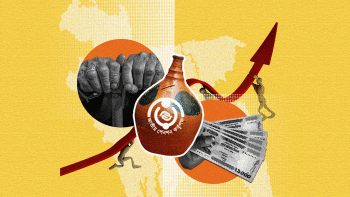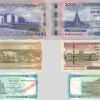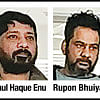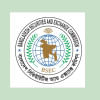What Bangladesh can do to get back laundered wealth

Over the past 15 years, people from various sectors—including politicians, businesspeople, bureaucrats, and police officials—have reportedly laundered over $100 billion abroad. This figure is likely underestimated, but even if it's close to the actual amount, the implications are staggering. To put this into context, $100 billion is nearly equivalent to Bangladesh's national budget for the next two years. It also matches the country's total external debt as reported by Bangladesh Bank. One could argue that if this money had not been laundered, it could cover nearly all of Bangladesh's foreign debt across both public and private sectors. Moreover, if repatriated, these funds could ease the strain on Bangladesh's foreign exchange reserves, helping to curb inflation.
Following the fall of the Awami League government, efforts are underway to explore ways to bring back the stolen wealth. Recently, officials from the Anti-Corruption Commission met with representatives from the US Federal Bureau of Investigation (FBI) and the United Nations Office on Drugs and Crime (UNODC), both of whom offered assistance in recovering laundered funds. Additionally, a visiting US delegation led by Department of Treasury Assistant Secretary Brent Neiman met with officials from the interim government. Although details of the discussions remain sparse, it was reported that the US government showed a willingness to aid Bangladesh in this respect, sparking cautious optimism among Bangladeshi analysts.
While some are hopeful about the prospect of repatriating the stolen money, others remain sceptical. Much of this uncertainty probably stems from a lack of awareness about previous cases where the US successfully helped other countries recover laundered funds. If Bangladesh is serious about bringing back the laundered wealth, it can learn from the experiences of countries like Malaysia, the Philippines, and most notably, Nigeria.
Between 1993 and 1998, Nigerian dictator Sani Abacha and his associates stole an estimated $5 billion, much of which was deposited in international banks across Switzerland, the US, the UK, and offshore accounts. After Abacha's death, Nigeria initiated efforts to recover the money. These efforts relied heavily on international legal frameworks such as the UN Convention Against Corruption (UNCAC), which enabled mutual legal assistance (MLA) agreements with other countries.
Switzerland was the first to cooperate, freezing Abacha's assets in 1999 after a formal request from Nigerian authorities. Following legal battles, the Swiss Federal Supreme Court ruled in 2002 in favour of returning $500 million of the laundered funds, marking it one of the largest recoveries of stolen assets by a developing country. By 2006, Switzerland repatriated most of the frozen assets under the condition that the funds be used for public projects like infrastructure, health, and education. To ensure that the funds were not misappropriated again, international organisations like the World Bank closely monitored how Nigeria used them. This level of oversight was a key element of the negotiations, ensuring the funds directly benefited Nigerian citizens.
The United States also played a crucial role in Nigeria's recovery efforts. In 2014, the Nigerian government formally requested assistance from the Department of Justice (DOJ). In response, the DOJ filed an asset forfeiture complaint in April 2014 to seize over $500 million traceable to the Abacha regime, under its Kleptocracy Asset Recovery Initiative. This led to the freezing of assets across several jurisdictions, including France, the UK, and the Crown Dependency of Jersey. By March 2020, the US, Jersey, and Nigeria signed a landmark agreement to repatriate over $308 million laundered through Jersey's financial system. Similar to Switzerland's case, the US and Jersey required that Nigeria use the funds for specific public projects. More recently, in August 2022, the DOJ announced another agreement to return an additional $23 million to Nigeria.
Nigeria's success in recovering stolen assets, with the help of Switzerland and the US, offers key lessons for Bangladesh. First, international cooperation is essential, with MLA treaties and global frameworks like UNCAC providing the legal basis for asset recovery. Second, partnerships with powerful nations like the US can be highly effective, as seen with the DOJ's role in freezing Nigeria's stolen assets. This underscores the importance for Bangladesh to work closely with global enforcement agencies and financial regulators.
Third, Bangladesh must ensure that any recovered funds are transparently managed and used for public projects. Finally, strong political will and patience are crucial, as asset recovery is often a complex and prolonged process. By embracing these strategies, Bangladesh can enhance its chances of recovering stolen wealth and directing it toward national development.
Dr Tasneem Raihan is a Bangladeshi-American financial economist. Views expressed in this article are the author's own.
Views expressed in this article are the author's own.
Follow The Daily Star Opinion on Facebook for the latest opinions, commentaries and analyses by experts and professionals. To contribute your article or letter to The Daily Star Opinion, see our guidelines for submission.

 For all latest news, follow The Daily Star's Google News channel.
For all latest news, follow The Daily Star's Google News channel. 










Comments